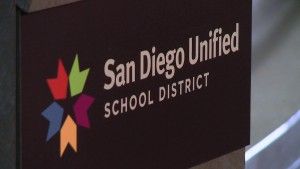Lawsuit could highlight flimsy government privacy claims
by Chris Reed | October 5, 2015 11:46 am
 For decades, California government officials have said privacy laws prevent them from disclosing information about employees’ misbehavior — up to and including petty corruption.
For decades, California government officials have said privacy laws prevent them from disclosing information about employees’ misbehavior — up to and including petty corruption.
The claims have always been dubious, according to experts on state privacy and labor relations statutes. Law enforcement officers are strongly protected by both state laws and a controversial court interpretation [1]of those laws. But rank-and-file government managers and employees who make mistakes have long been exposed or protected at the whims of city managers or mayors or school district superintendents.
The California First Amendment Coalition notes [2]that governments officials often assert that personnel, medical and similar files are exempt from disclosure: “This exemption is routinely invoked when the public agency believes a request seeks information pertaining to identifiable public officials or employees that is private, sensitive or controversial. But in fact, the information may only be withheld if its disclosure ‘would constitute an unwarranted invasion of personal privacy.’ (Government Code § 6254(c)). That is, and is meant to be, a high threshold.”
Now a potentially landmark case is unfolding in San Diego Unified, the state’s second-largest school district, that could expose the discretionary nature of government officials’ sweeping claims of privacy for employee conduct.
Near the end of the 2013-14 school year at the district’s School of Creative and Performing Arts, Superintendent Cindy Marten refused to disclose the specific details of the decision to abruptly reassign Principal Mitzi Lizarraga and lock her out of the school. Rumored penalties given to a school counselor were also judged as protected by privacy laws.
But then the heat built on Marten and school board President Marne Foster over several Foster actions that raised questions about her ethics and judgment. A May 2015 grand jury report, without naming Foster, blamed [3]a school board member for the School of Creative and Performing Arts’ shakeup. The grand jury corroborated what school activists had said about Foster reacting with fury to a negative college recommendation for her son, who was a senior in 2013-14, and said the district needed better rules to prevent improper board member interference.
Three months later, in the district’s official response, Marten dismissed the grand jury report as too vague to act on and as calling for safeguards against board member interference that were already in place.
School district cites privacy exemption, then says never mind
But Voice of San Diego pursued the matter and landed the first interviews with Lizarraga[4], now principal [5]of the Los Angeles County High School for the Arts, and Kim Abagat[6], a counselor who had been suspended for nine days.
Both described Foster as a nightmarish force at their school. Abagat said she had been punished for accurately describing her son’s record at the school. Lizarraga said she was abruptly reassigned by one of Marten’s top aides after Foster’s son was barred from the prom because of behavioral lapses.
This led Marten to issue 61 pages of internal district documents[7], including a private investigator’s report, that she said showed that she and the district had responded properly to Foster’s interference at the school and that the district had been justified in its personnel decisions. The superintendent said because of their interviews, the district was now justified in releasing information about Lizarraga and Abagat it had previously said it could never release.
But Lizarraga and Abagat didn’t agree, and they have hired a San Diego criminal defense lawyer, who strongly hinted a lawsuit was to come because the privacy rights of his clients had been abused. Such a lawsuit could be a landmark in that it might establish just how much of a right to privacy that school employees have, and if those rights are somehow vacated when they publicly respond to criticism of their job performance.
There is a bizarre element to the case. District documents credibly showed why Abagat’s punishment may have been deserved; counselors with deep concerns about students are supposed to pass college evaluations on to colleagues who may have a different opinion. She also got basic information about Foster’s son wrong.
However, Lizarraga wasn’t punished; she was reassigned to a position invented for her that she held for a few months before taking the Los Angeles job.
So San Diego Unified officials are in the peculiar position of saying Lizarraga’s job performance was so bad they had to abruptly promote her and that the decision wasn’t influenced by Foster’s fury over her son being punished and judged a poor college prospect but by a long accumulation of management miscues.
Lizarraga may not have much of a case that her privacy rights were violated. As the principal of a high-profile high school, reasons for her reassignment should be public record, according to the First Amendment Coalition. But when it comes to a defamation case, San Diego Unified’s vulnerability appears high.
- interpretation : https://www.indybay.org/newsitems/2009/02/25/18573293.php
- notes : http://firstamendment.staging.wpengine.com/public-records-2/cpra-primer/cpra-primer-exemptions/
- blamed : http://www.sandiegouniontribune.com/news/2015/may/25/report-school-board-controls-needed/
- Lizarraga: http://www.voiceofsandiego.org/topics/education/marne-fosters-a-mother-first-for-better-or-worse/?utm_source=Voice+of+San+Diego+Master+List&utm_campaign=42c4ced4db-Morning_Report&utm_medium=email&utm_term=0_c2357fd0a3-42c4ced4db-81844869&goal=0_c2357fd0a3-42c4ced4db-81844869
- principal : http://www.scpr.org/blogs/education/2014/12/29/17706/new-head-of-lachsa-talks-about-famous-arts-high-sc/
- Kim Abagat: http://www.voiceofsandiego.org/topics/education/school-counselor-i-was-punished-for-telling-the-truth-about-board-presidents-son/
- internal district documents: http://www.voiceofsandiego.org/must-reads/district-slams-counselro-and-former-principa-in-document-dump/
Source URL: https://calwatchdog.com/2015/10/05/lawsuit-highlight-flimsy-government-privacy-claims/